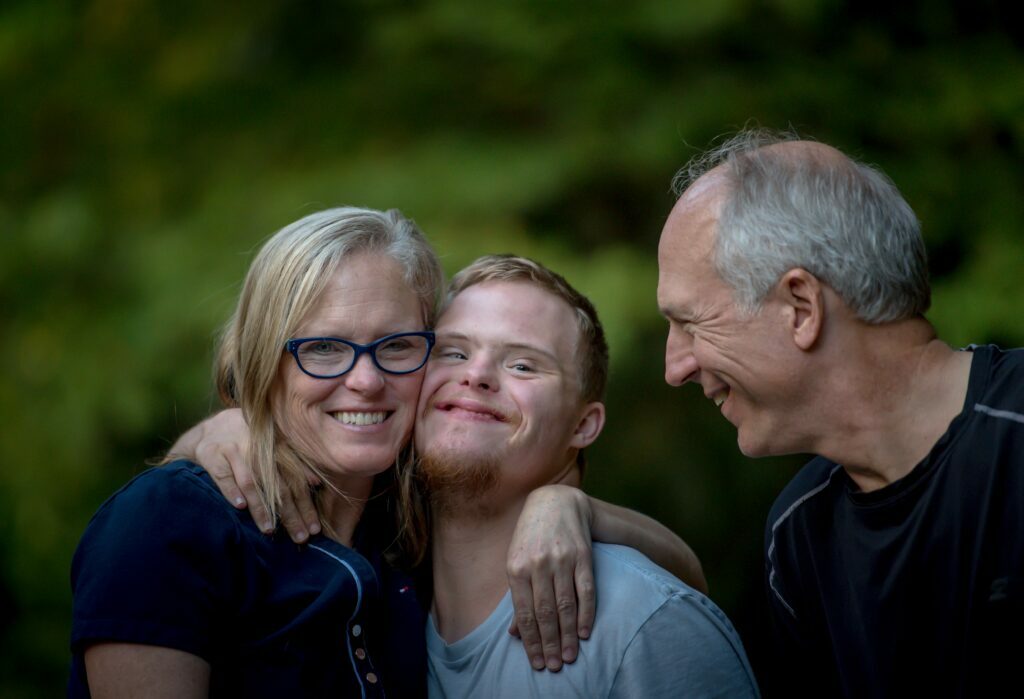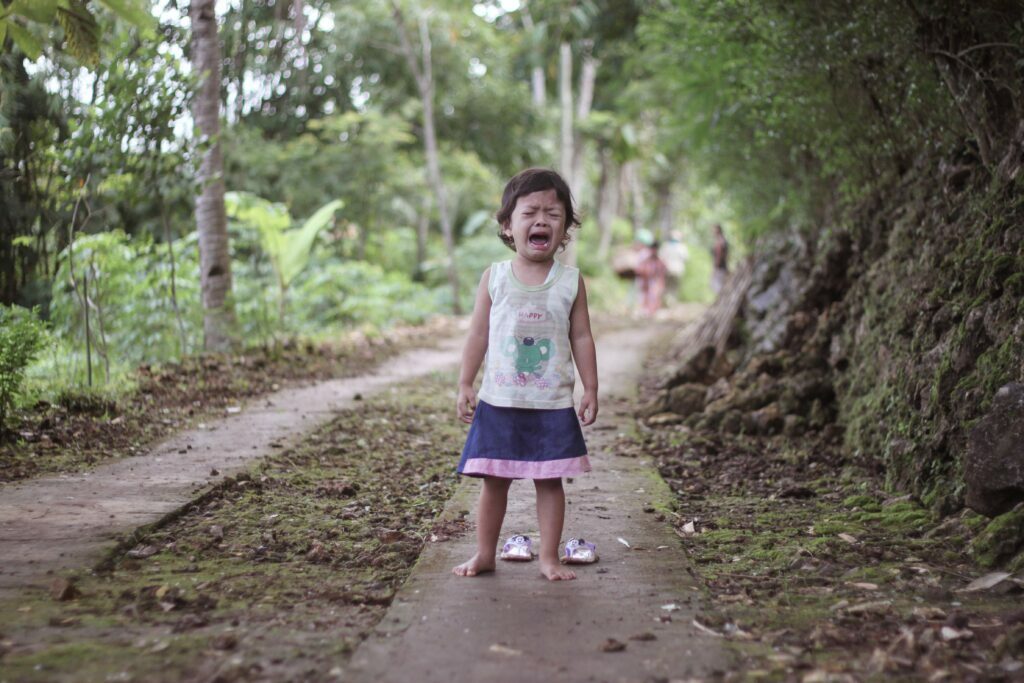Parents have been spending much more time with children in the past few years. It means that today’s fathers and mothers take on the issue of their child’s education more responsibly. This fact is an excellent achievement for teachers and psychologists. However, even the most careful parent isn’t completely safe from errors. That is to say, there are phrases parents use with their kids to avoid. These phrases are always random or unplanned that harm the mental health of their children.
CHILDREN’S AREA has delved deeper into children’s psychology and came up with the following list of terms that negatively affect children, even if the parents don’t intend to.
"You are so beautiful!"

Psychologists suggest not allowing girls’ focus on their appearance. As they grow older, they can think that their beauty is the only thing that counts and may focus on minor flaws. In the end, they may build a variety of complicated thoughts and waste valuable time they could use in self-development or imagination.
"I was scoring 100 goals when I was your age!"

Among the phrases parents use we find comparatives that aren’t favorable to the child as they are always hurtful. In addition, the offense is more significant when contrasted not with a neighbor or their uncle but their parents, who are their examples in life.
Continuous discussions make the child feels less confident and could even be why they distance themselves from their parents.
"No-no Don't take a trip there! It's dangerous!"

Stress and worry about their children are expected for parents. However, the desire to shield their child from the world around them and be too protective can result in « Peter Pan Syndrome » within the child. The majority of people over 30 are affected (most times, they’re men). They don’t want to age and are uncooperative, infantile, and emotional, just like children. It’s difficult for these individuals to have a family of their own; they aren’t ready to have children and accept on their own.
Phrases parents use, but it's wrong "Of course, yes!"

It’s tough to tell « no » to your kid, yet being always pleased can be more damaging than reassuring. Parenting with permission ultimately harms everyone who is a part of the process. Researchers conducted a study and revealed that all-permissiveness could indirectly cause a child to become involved with the wrong people. If their new friends and peers influence them, they could get in trouble or be convicted of the crime.
"You are far superior to ..."

Children believe what adults say to them. That is why it’s not a good idea to praise your kids too much and make them believe in their uniqueness, even for motivational motives. In doing so, parents may become their very own Narcissist.
"I told you!"

Inflating that you were aware of the consequences of your child’s ideas will not benefit your child. They must be aware by their own experiences that using a bicycle requires concentration and vigilance and that clothes can become cold and wet when one leaps into puddles. Instead of showing that you have a clear understanding of potential consequences, you should praise the child for making the right choices and getting through the obstacles.
"I was brought up this way and I grew into a normal person"

Our fathers’ and mothers’ parenting techniques gave us a blueprint to follow. However, this does not mean that we should raise our children similarly. Knowing your child’s requirements is far more crucial than focusing on the existing parenting system. Each person is different -it is of paramount importance to be aware of that.
"I am so fat -- it's time I started dieting!"

We all suffer from low self-esteem attacks and can’t look like the person we want to be when we look in the mirror. However, for kids, parents are always the most ideal. Therefore, you shouldn’t just reduce yourself to the level of your child’s eyes but also help them develop negative attitudes towards their appearance by pointing out your flaws with your child.
School bullying tend to share common traits such as aggressive, dominant, slightly lower than average intelligence and reading ability … CONTINUE READING ➞WHAT IS SCHOOL VIOLENCE?
"Don't eat that -- you are already fat!"

The most common phrases parents use are criticism. In the case of excess weight and the restriction on diets that go with it, it’s far more beneficial to concentrate on the flavor and benefits of eating healthy rather than the dangers of unhealthy eating. « Turns out, broccoli is very tasty! » It sounds more appealing than « French fries do nothing but make you even fatter! » The idea of reminding your children that they’re overweight can be damaging to children’s self-esteem and can cause issues with overeating in adulthood.
"I'll leave you here!"

In many instances, we hear parents saying, « Ok, you stay — I am leaving! » when their kids do not want to return to their home after a walk or to another place. A regular, pronounced threat to leave can scare a child, deprive them of the sensation of being secure, and may ruin their connection to parents as a source of security. Instead, try switching the attention of your disobedient youngster to a beautiful car or look over the animals or dogs that you’ll encounter when you return home.
"Don't do it!"

Unfortunately, the saying « Don’t do it! » does nothing to encourage a child to modify their behavior. They’ll continue from swinging, measuring the size of puddles, and throwing the sand. It is better to focus on words that don’t have negative meaning and help achieve your desired result. Phrases parents use such as « Don’t jump into that puddle! » could be replaced by the phrase « Go around this puddle! » And be sure you add « Please » and show it through your example. You’ll be satisfied with the result soon enough.
School violence in our schools. family and local enviornment are the main causes. physical and psychological problems are the main results… CONTINUE READING ➞WHAT IS SCHOOL VIOLENCE?
"You are a big kid now -- there is nothing to be scared of!"

Fear is an emotion that is not rational, and even adults are sometimes terrified of certain situations. Naturally, small children have experienced the same feeling. Children’s fears can be diverse and can sometimes be funny to adults. However, it doesn’t mean that we do not have to pay attention to children’s fears. An unthinking expression spoken to a scared child demonstrates that they’re unheard and that an adult has no regard for their feelings. It is better to show compassion and love for your child or son.
"Our finances are not your business."

The discussion of financial matters is a complicated topic for parents of all ages. Most parents and their children are reluctant to discuss the reason why it’s impossible to purchase a toy or visit any amusement center. But, they must. Children are aware of many things; however, they may make the wrong assumptions and resent their lack of financial resources. Untruths can persist throughout adulthood and make them unemployed people who keep money in reserve and are hesitant to spend it. On the other hand, they may turn into an addict who cannot stop spending money.
In these instances, psychologists suggest not concealing financial issues from children but also avoiding a negative view of the situation, and instead focusing on the positive aspect that the problems are not permanent and that parents will be able to deal with the issues in the future.


колиета-на веригата за доставки магазинкупува памучни тампонидруго ценаблузи и ризи евтинилек автомобил в събирането на цена пластира магазин
That sounds interesting!